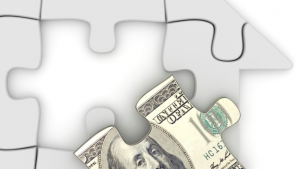
Consider refinancing into a shorter-term loan
Paying off your mortgage is a marathon, not a sprint.
But what if you’ve reached a point of the marathon and found a way to run the rest of it downhill?
Now is a great time to consider refinancing your loan from your current 30-year note to a 15-year mortgage. You’ll likely end up paying significantly less interest over the term of your new loan compared to your current loan.
The interest rate for a 30-year mortgage in 2006 averaged more than 6.0%. Recent rates for a 15-year home refinance have been in the 2%’s. This is a potential savings of tens of thousands of dollars by refinancing.
Your savings come as the amortization schedule pays down much faster with more money going to principle and less to interest. For example, if you got a $100,000 loan with a 30-year repayment period in January 2006 paying 6% interest, the monthly payment would be around $600. The amount of interest paid per payment would range from around $100 at the first payment to around $250 in 2021. If you refinanced the remaining balance of around $71,000 into a new 15-year loan with a 2% interest rate, the monthly payment would drop to around $460 per month and would save approximately $25,000 in interest compared to the 30-year loan.
But does refinancing your loan make sense?
There is no cookie-cutter approach to refinancing. There are many factors to take into consideration before taking the plunge. The example scenario described above could be different for your situation depending on a variety of unique factors specific to you and your mortgage.
Do you plan on staying in your house for a while longer, or do you plan on moving soon? If you don’t plan on staying in your current home much longer, it likely would not make sense to refinance because of the cost and fees associated with refinancing. Interest rates can emotionally draw you to refinance, but be sure to do the math of how much will you would save monthly and/or over the life of the loan versus how much it costs to refinance. For example, if it cost $4,000 to refinance and you save $100 per month, it will take 40 months — a little over 3 years — to recoup the cost. If you plan on moving prior to that time frame, it probably would not be worth the “feel good” rate.
Other related costs with refinancing
Before jumping into anything, don’t forget to factor in other costs. Can you recoup the cost and gain savings after the break-even point?
There may be closing costs, processing fees, appraisals, loan origination fees, discounts fee, underwriting, and tax service fee. Some third party fees, such as appraisers and title company fees, likely will be the same no matter what lender you choose. Most of the time, the savings over the life of the loan will more than offset these costs, but you should do your due diligence to check this yourself just to make sure.
Choose the lender that works best for you and try to get your rate locked in as soon as possible when you refinance. Lenders at RCB Bank are happy to help answer questions even if you are not a customer. Give us a call or visit our online Mortgage Center.
Opinions expressed above are the personal opinions of RCB Bank personnel and meant for generic illustration purposes only. For specific questions regarding your personal lending needs, please call RCB Bank at 855-BANK-RCB. With approved credit. Some restrictions apply. RCB Bank is an Equal Housing Lender and member FDIC. RCB Bank NMLS #798151.



